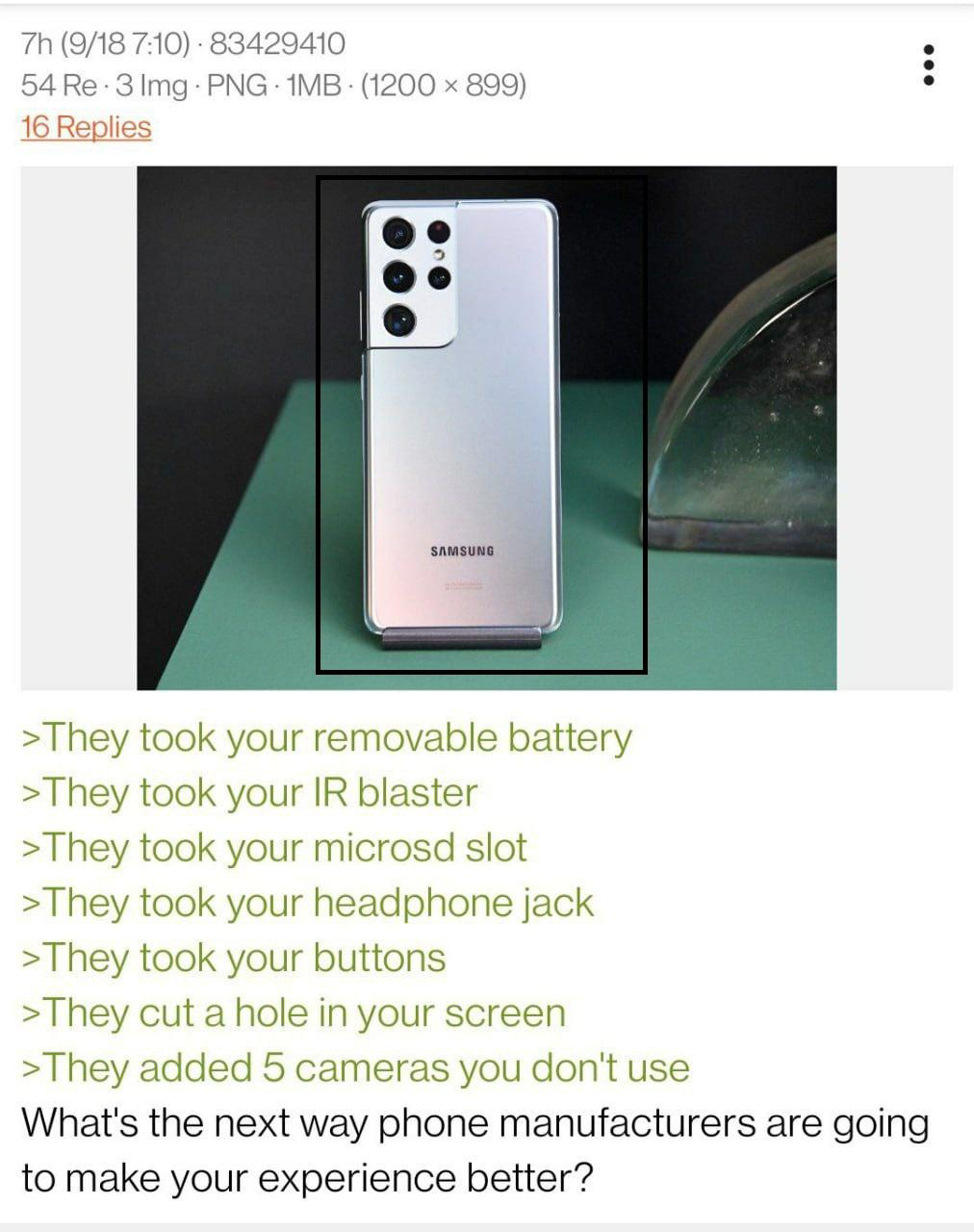this post was submitted on 14 Jan 2024
1435 points (97.4% liked)
Greentext
4816 readers
1939 users here now
This is a place to share greentexts and witness the confounding life of Anon. If you're new to the Greentext community, think of it as a sort of zoo with Anon as the main attraction.
Be warned:
- Anon is often crazy.
- Anon is often depressed.
- Anon frequently shares thoughts that are immature, offensive, or incomprehensible.
If you find yourself getting angry (or god forbid, agreeing) with something Anon has said, you might be doing it wrong.
founded 1 year ago
MODERATORS
you are viewing a single comment's thread
view the rest of the comments
view the rest of the comments

Not really. Patests expire and then they can just read the specs in your idea. No reverse-engineering effort required.
It takes 20 years for patents to expire, and you can't commercially use the patented invention until then. If I "invent" and patent 50 different methods to track viewer attention during video advertisements, that's 50 fewer ways that some company would be able to achieve it.
It would be impossible to cover every possible method to achieve the same thing, but the risk of violating a patent held by a highly litigious patent troll might be a good enough deterrent to stop the whole idea from making it to market for a couple decades.
Yes, but after 20 years you're not at square one, others have free reign to use and abuse your expired patent. Sure, you can tacticize patents in a way where you make a starting patent, then before it's about to expire "expand" it with a new one in a way which invalidates use of the previous, but I don't know if that "loophole" is patched and if not, how it looks in real life.
That is an entirely valid concern, and I see where you're coming from with that. It would be short-sighted to introduce something revolutionary, only to open the floodgates for everyone else to start implementing it two decades later.
I was thinking of using patents more along the lines of "throw shit at the wall and see what sticks." Rather than trying to come up with every conceivable method for tracking user attention and patenting those, the hypothetical patent troll would create and patent hundreds of different smaller, novel processes that may or may not be needed as part of a larger system for tracking user attention. The overall goal being to make it likely enough for one or more of those patents to be violated that a company would consider it too risky to go anywhere near the idea of commercializing attention tracking software/hardware.